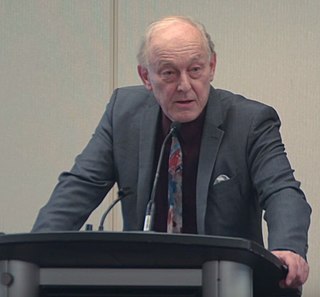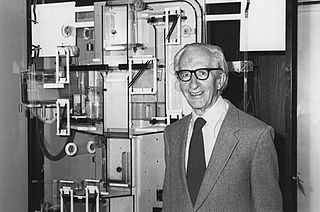A Quote by Muhammad Yunus
What good does the theory [of economics] do if it is not working for people?
Related Quotes
I started in the law; and the study of law, when it precedes the study of economics, gives you a set of foundation principles about how human beings interact. Economics is very useful, and I studied economics in graduate school. But without understanding the social and organizational context of economics, it becomes a theory without any groundwork.
[Donald] Trump and all the Republicans believe in the theory of trickle down economics which is a theory discredited even by the author himself David Stockton. The theory suggests that if we take care of the people at the top, if we cut taxes for the wealthy, if we make sure they are doing really well, then the investments that they make in the economy and the jobs that will create, will make everything grow and it will have a trickle down effect on the rest of us.
What would it mean if there were a theory that explained everything? And just what does "everything" actually mean, anyway? Would this new theory in physics explain, say the meaning of human poetry? Or how economics work? Or the stages of psychosexual development? Can this new physics explain the currents of ecosystems, or the dynamics of history, or why human wars are so terribly common?
If the theory accurately predicts what they [scientists] see, it confirms that it's a good theory. If they see something that the theory didn't lead them to believe, that's what Thomas Kuhn calls an anomaly. The anomaly requires a revised theory - and you just keep going through the cycle, making a better theory.
Trickle-down economics - it didn't work. The whole idea was supply-side economics: give rich people a lot of money; they'll spend it, it'll go into the economy. Here's what we found out - rich people, really good at keeping all the money. That's how they got rich. If you want it in the economy, give it to the poor people. You know what they're really good at? Spending all their money.
What the public does is not to express its opinions but to align itself for or against a proposal. If that theory is accepted, we must abandon the notion that democratic government can be the direct expression of the will of the people. We must abandon the notion that the people govern. Instead, we must adopt the theory that, by their occasional mobilizations as a majority, people support or oppose the individuals who actually govern. We must say that the popular will does not direct continuously but that it intervenes occasionally.
I picked economics at the end of my undergraduate time because it seemed to be a really nice combination of theory, including mathematical theory on one hand, and things that are quite practical that you can touch and see and feel. So I picked it, and I consciously thought of it as an experiment to see if I liked it. And it worked.
































